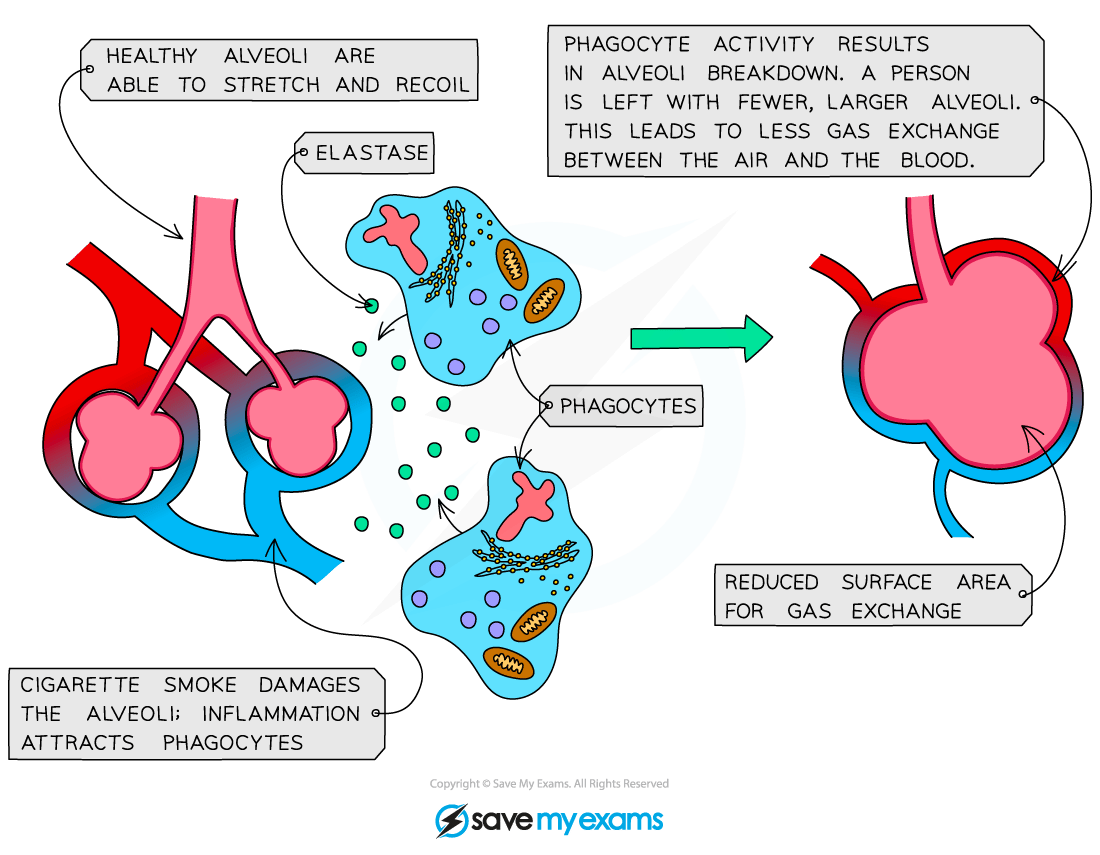- 翰林提供学术活动、国际课程、科研项目一站式留学背景提升服务!
- 400 888 0080
Edexcel IGCSE Biology: Double Science 复习笔记 2.7.2 Smoking & the Human Gas Exchange System
Edexcel IGCSE Biology: Double Science 复习笔记 2.7.2 Smoking & the Human Gas Exchange System
Smoking & the Gas Exchange System
- Smoking causes chronic obstructive lung disease (COPD), coronary heart disease and increased risks of several different types of cancer, including lung cancer
- Chemicals in cigarettes include:
- Tar - a carcinogen (a substance that causes cancer)
- Nicotine - an addictive substance which also narrows blood vessels
- Carbon monoxide - reduces the oxygen-carrying capacity of the blood
Nicotine
- Nicotine narrows blood vessels leading to an increased blood pressure
- It also increases heart rate
- Both of these effects can cause blood clots to form in the arteries leading to heart attack or stroke
Carbon monoxide
- Carbon monoxide binds irreversibly to haemoglobin, reducing the capacity of blood to carry oxygen
- This puts more strain on the breathing system as breathing frequency and depth need to increase in order to get the same amount of oxygen into the blood
- It also puts more strain on the circulatory system to pump the blood faster around the body and increases the risk of coronary heart disease and strokes
Tar
- Tar is a carcinogen and is linked to increased chances of cancerous cells developing in the lungs
- It also contributes to COPD, which occurs when chronic bronchitis and emphysema (two different diseases which are frequently linked to smoking) occur together
- Chronic bronchitis is caused by tar which stimulates goblet cells and mucus glands to enlarge, producing more mucus
- It destroys cilia and mucus (containing dirt, bacteria and viruses) builds up blocking the smallest bronchioles and leading to infections
- A smoker's cough is the attempt to move the mucus
- Emphysema develops as a result of frequent infection, phagocytes that enter the lungs release elastase, an enzyme that breaks down the elastic fibres in the alveoli
- This means the alveoli become less elastic and cannot stretch so many burst
- The breakdown of alveoli reduces the surface area for gas exchange
- As it progresses, patients become breathless and wheezy - they may need a constant supply of oxygen to stay alive

The breakdown of alveoli in emphysema reduces the surface area for gas exchange
转载自savemyexams

早鸟钜惠!翰林2025暑期班课上线

最新发布
© 2025. All Rights Reserved. 沪ICP备2023009024号-1








